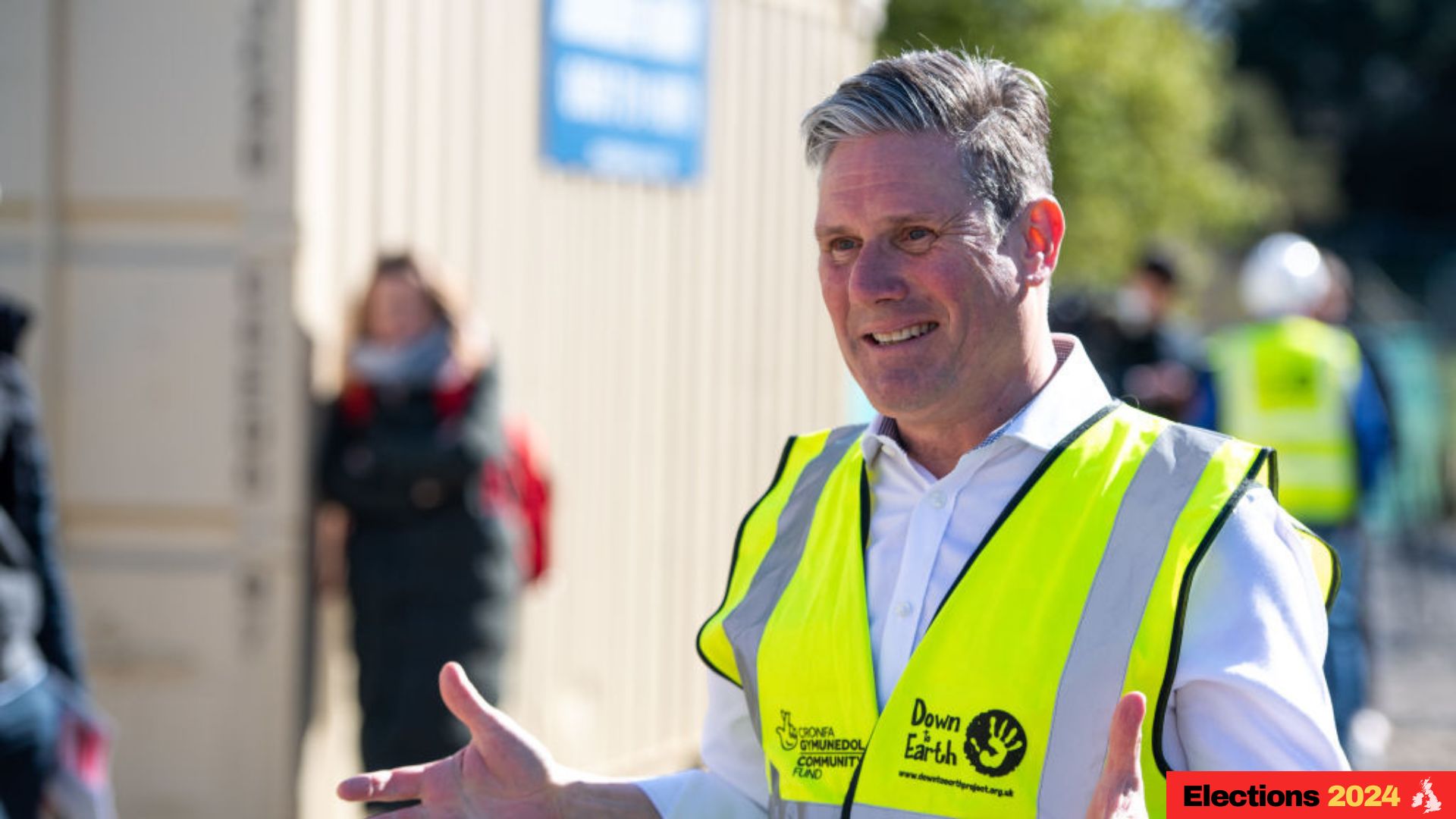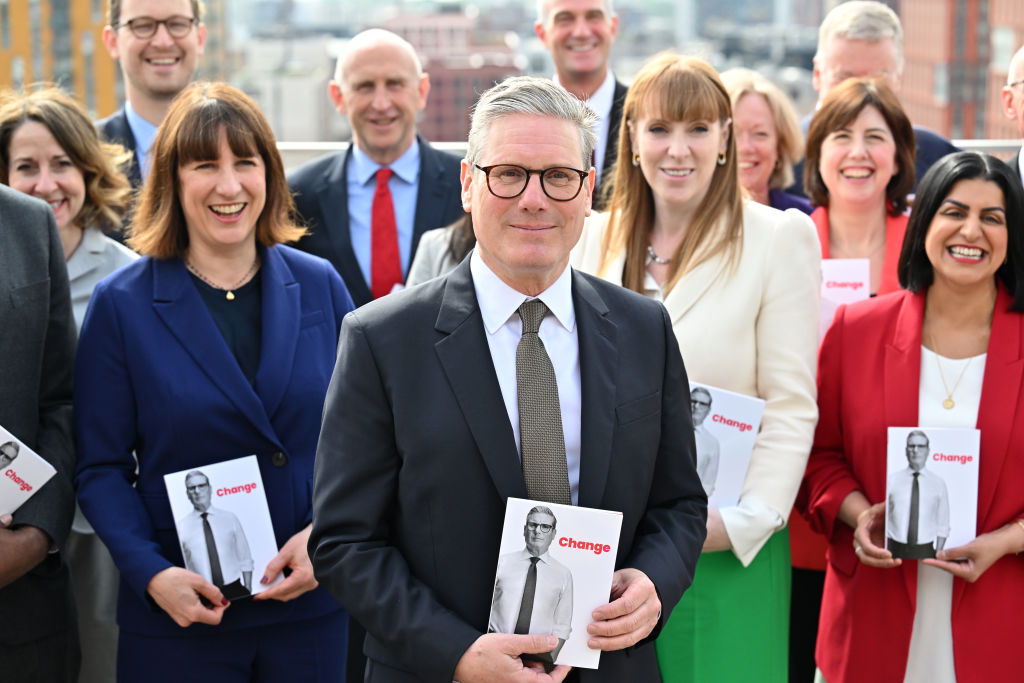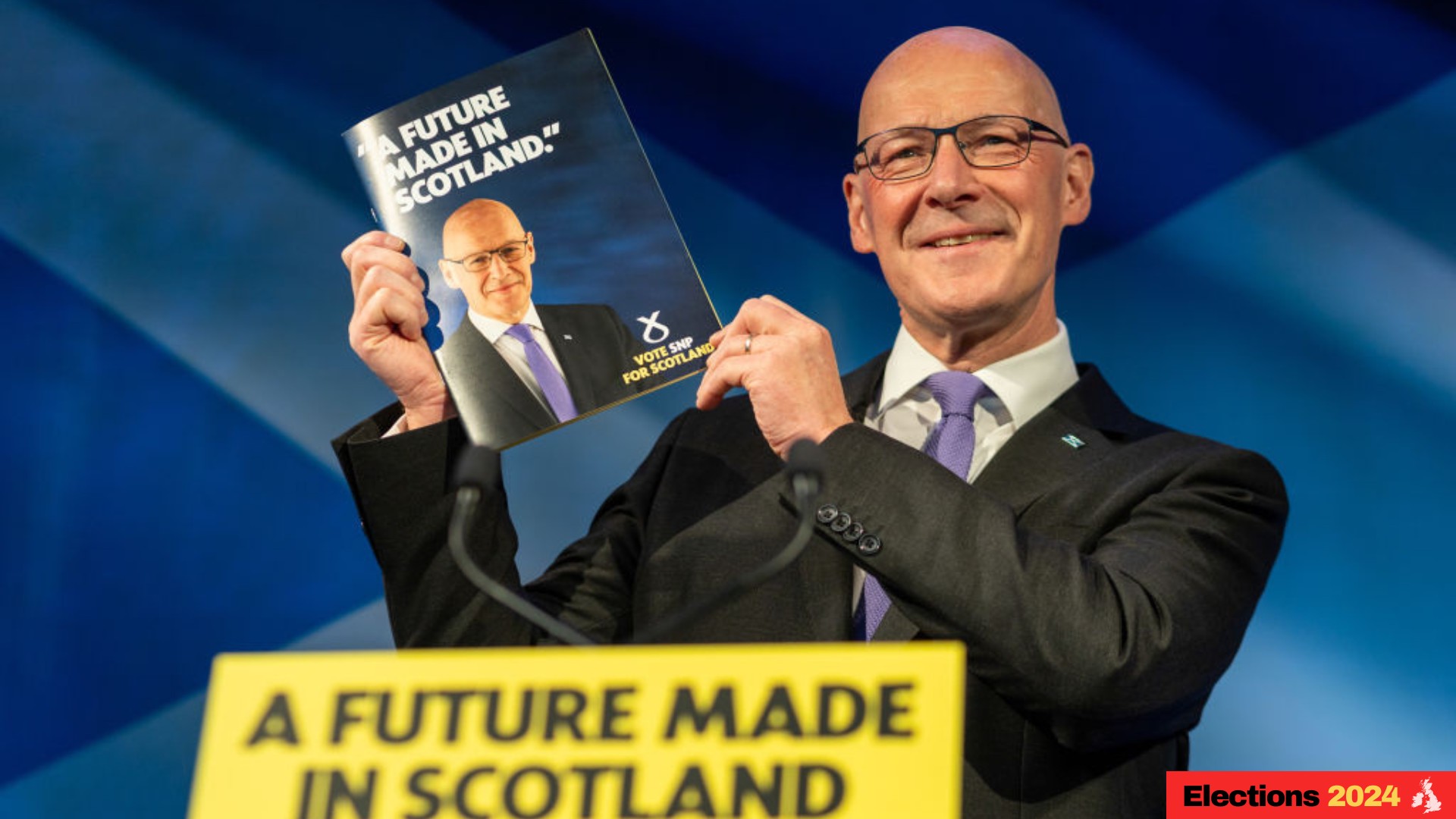What does the Labour manifesto say about property? Key 2024 general election pledges
The Labour manifesto has made several promises on rental reform, the leasehold system and housing market support. Here’s what a Keir Starmer government means for property.


Get the latest financial news, insights and expert analysis from our award-winning MoneyWeek team, to help you understand what really matters when it comes to your finances.
You are now subscribed
Your newsletter sign-up was successful
Want to add more newsletters?

Twice daily
MoneyWeek
Get the latest financial news, insights and expert analysis from our award-winning MoneyWeek team, to help you understand what really matters when it comes to your finances.

Four times a week
Look After My Bills
Sign up to our free money-saving newsletter, filled with the latest news and expert advice to help you find the best tips and deals for managing your bills. Start saving today!
The Labour Party unveiled its general election policy pledges on Thursday (13 June).
Its lengthy manifesto document, which the party titled ‘Change’, makes several major pledges, including plans to cut NHS waiting times, recruit more teachers and set up a publicly-owned green energy company. There were also several money policies.
Personal finance commitments include keeping the triple lock on state pensions, ending a VAT tax break for private school fees, and closing inheritance tax loopholes. But the manifesto was as much about what Labour didn’t say, as what it did.
MoneyWeek
Subscribe to MoneyWeek today and get your first six magazine issues absolutely FREE

Sign up to Money Morning
Don't miss the latest investment and personal finances news, market analysis, plus money-saving tips with our free twice-daily newsletter
Don't miss the latest investment and personal finances news, market analysis, plus money-saving tips with our free twice-daily newsletter
According to the Institute for Fiscal Studies (IFS) think tank, the party has joined the Conservative Party and Liberal Democrats in a “conspiracy of silence” about public spending cuts. Meanwhile, the document’s own silence on capital gains tax and the lifetime allowance has suggested neither measure will be off limits at Labour’s first Budget event - should it form the next government. However, there appeared to be little basis for the Tories’ £2,000 tax hikes claim in the manifesto.
Alongside its money pledges, Labour also revealed several housing market reforms. Some, like Freedom to Buy, had been announced in advance of the manifesto launch. But there were one or two property-related surprises in the document too. So, what are they - and what do they mean for housing?
Labour manifesto rental reforms
One of the more eye-catching pledges Labour made was a plan to extend Awaab’s Law. The law is named after the toddler Awaab Ishak, who died of a respiratory condition that was caused by excessive mould in the social housing he lived in. At present, it forces social landlords to investigate safety hazards in their accommodation within a certain time frame. Labour’s manifesto suggests it could be extended to include private landlords.
However, the most attention-grabbing commitment from Starmer’s party was a pledge to resurrect key elements of the Renters Reform Bill. The legislation, which formed a key part of Boris Johnson’s 2019 manifesto, was first watered down - and then axed when Parliament dissolved for the general election.
Labour would “immediately” abolish section 21 ‘no fault’ evictions, if it gets elected on 4 July. The party says it will also give tenants the power to challenge unreasonable rent hikes, force landlords to implement minimum energy efficiency standards by 2030, and give renters greater protections against exploitation and discrimination.
These measures are unlikely to have come as a surprise to landlords given the Renters Reform Bill broadly had cross-party support. “All of the main parties are committed to ending section 21,” said Ben Beadle, chief executive of the National Residential Landlords Association. “What matters is ensuring the replacement system works, and is fair, to both renters and responsible landlords.
“Given this, we agree with [Labour’s argument] that landlords need robust grounds for possessions in legitimate circumstances, and they need the system to operate quickly when they do. We stand ready to work constructively with a potential Labour government to achieve this and ensure a smooth transition to the new system. This needs to include giving the sector time to properly prepare for it.”
Nathan Emerson, chief executive at estate agent trade body Propertymark, agreed. He added: “Any aspiration to reintroduce the Renters Reform Bill must come with full disclosure and a realistic timeline regarding the required court reform before the removal of Section 21 evictions should ever become a reality.”
Leasehold reforms
Rishi Sunak’s government had aimed to bring in large scale reform of the leasehold system. But the election announcement meant the Leasehold and Freehold Reform Act was watered down so it could be pushed through by MPs ahead of Parliament being dissolved.
Labour wants to go further than this legislation - and the Conservative manifesto - and “bring the feudal leasehold system to an end”. It says it will enact the Law Commission’s recommendations for enfranchisement, right to manage and commonhold. In terms of its more immediate priorities, it says it will set out to ban new leasehold flats and ensure commonhold is the default for apartment blocks. The party also wants to crack down on “unregulated and unaffordable” ground rents and maintenance charges, as well as end ‘fleecehold’ private housing estates
The National Leasehold Campaign has called on Labour - and the other major parties - to set out “clear time frames” for when they will enact their pledges, if they get elected.
First-time buyer support
One of Labour’s key pitches to younger voters in advance of the manifesto announcement was its Freedom to Buy scheme. This would extend the existing mortgage guarantee scheme, which is designed to help people who can’t save enough for a deposit but can afford mortgage repayments.
This scheme also ties in with a policy to give first-time buyers (FTBs) first dibs on new build developments. It claims new estates are currently being “sold off to international investors” before a shovel enters the ground.
Experts have pointed out that while the scheme may address one of the obstacles facing FTBs, high mortgage rates and high house prices relative to incomes are bigger hurdles that need attention.
For example, Rightmove said Freedom to Buy would make the mortgage guarantee scheme more “attractive to lenders” and added that its continuation would be “helpful”. But the property listing site also said it should be the “first step amongst many” for FTB support.
Its property expert, Tim Bannister, said: ‘We welcome policies and innovations which are trying to help more first-time buyers onto the ladder. Creating a permanent mortgage guarantee scheme would at least give first-time buyers the certainty that the option will be there.
“However, we know from our own research that policies like the mortgage guarantee scheme have limitations, and are only able to help a very small pool of future first time buyers that fit specific requirements. One of the biggest barriers for first time buyers is being able to borrow enough from a lender, which a mortgage guarantee scheme doesn’t address.”
House building and planning reform
The main Labour pledge in this area is a plan to build 1.5 million homes over the next Parliament. It says it will get there by bringing in mandatory housing targets, as well as reforming the planning system. New builds will also have to meet higher standards and sustainability targets - although it appears to have committed to watering down nutrient neutrality protections.
It has identified that a lack of planning officers at local authorities is holding up development. So, it plans to increase the stamp duty surcharge on purchases by non-UK residents by 1%. While the amount raised - £40m - is peanuts in fiscal terms, the party claims it would be more than enough to appoint 300 new planning officers (a pledge that would cost £20m).
While Starmer’s party says it will “ensure local communities continue to shape house building in their area”, it has not ruled out intervening if it believes developments are being blocked. Likewise, while it says it will prioritise unlocking the ‘grey belt’ - i.e. old car parks and concrete wasteland - and will take a “brownfield first approach”, it says it will also take a “more strategic approach” to greenbelt development.
Alongside these pledges, it has committed to building another generation of new towns, and finding new ways in which different tiers of local authority can work together on housing across their boundaries.
The Institute for Government think tank described the house building programme as “ambitious” but added that its success would hinge on whether new MPs could be kept on board. It said: “Successive governments – of all stripes – have made ambitious promises but failed to deliver them in a country that wants more houses built nationally but doesn’t want to build them locally. This manifesto signals that Labour are serious about setting a better record.
“It makes no bones about prioritising new houses above local objections. The question is whether Labour’s plans will survive contact with Parliament, whatever size its majority. In recent years, backbench MPs made short work of first defeating Boris Johnson’s proposals to reform the planning system, then pressuring housing secretary Michael Gove into downgrading local housing targets to ‘advisory’ status (and many local areas have since taken this opportunity to scrap proposed developments).”
Also reacting to the planning reforms the party has proposed, head of policy and market insight at the National Federation of Builders, Rico Wojtulewicz, said: “Labour appears to understand how damaging a broken planning system is for society, the economy and growth. For the construction industry this means businesses will finally be able to plan, rather than operate hand to mouth. Such a change will ensure cashflow certainty for businesses’ reinvestment, which in practice means a reduction in construction insolvency, more directly employed labour and apprenticeships, and businesses getting back to constructing, rather than spending ninety percent of their time getting permission to start building.
“However, we have been here before with [ex-Housing Secretary] Robert Jenrick’s ‘Planning for the Future’ white paper, which was shelved after the Conservative government lost a by-election and backbenchers revolted over land use.”
Wojtulewicz added that there were some concerns about the “lack of detail” on some key policy proposals. For example, around biodiversity and nutrient neutrality.
Get the latest financial news, insights and expert analysis from our award-winning MoneyWeek team, to help you understand what really matters when it comes to your finances.
-
 Should you buy an active ETF?
Should you buy an active ETF?ETFs are often mischaracterised as passive products, but they can be a convenient way to add active management to your portfolio
-
 Power up your pension before 5 April – easy ways to save before the tax year end
Power up your pension before 5 April – easy ways to save before the tax year endWith the end of the tax year looming, pension savers currently have a window to review and maximise what’s going into their retirement funds – we look at how
-
 General election 2024: who’s in the Labour cabinet?
General election 2024: who’s in the Labour cabinet?A new Labour cabinet has been appointed by Keir Starmer after his party won the general election. Here’s the latest on who’s in it
-
 What does the Labour election win mean for your money? Key manifesto points after landslide
What does the Labour election win mean for your money? Key manifesto points after landslideNews The Labour election win was not as large as some polls had predicted. But the new government’s majority will mean it can enact significant changes.
-
 What would a Labour supermajority mean for capital markets?
What would a Labour supermajority mean for capital markets?The Conservative Party has warned that a Labour supermajority would be bad for democracy. But what impact could a big win for Keir Starmer have on the markets?
-
 SNP manifesto 2024: what money policies did John Swinney announce?
SNP manifesto 2024: what money policies did John Swinney announce?The SNP manifesto has been launched in Scotland, and makes several key commitments, including a pledge to end austerity and a commitment to rejoin the EU.
-
 Labour pledges to open 'at least' 350 banking hubs over next Parliament
Labour pledges to open 'at least' 350 banking hubs over next ParliamentNews The Labour Party claims it will ‘bring banking back to the high street’ if it forms the next government after the 2024 general election.
-
 Green Party manifesto 2024: key personal finance general election policies
Green Party manifesto 2024: key personal finance general election policiesA Green Party government would introduce a wealth tax, increase National Insurance Contributions for high earners, and move towards a universal basic income.
-
 Conservatives pledge to raise high income child benefit threshold – how much could you save?
Conservatives pledge to raise high income child benefit threshold – how much could you save?News The high income child benefit charge threshold could be doubled to £120,000 if the Conservative Party wins the general election, Chancellor Jeremy Hunt has pledged.
-
 Labour unveils 'Freedom to Buy' pledge to get young people on housing ladder
Labour unveils 'Freedom to Buy' pledge to get young people on housing ladderNews Freedom to Buy will get 80,000 young people onto the housing ladder by the next general election, Keir Starmer's party has claimed
